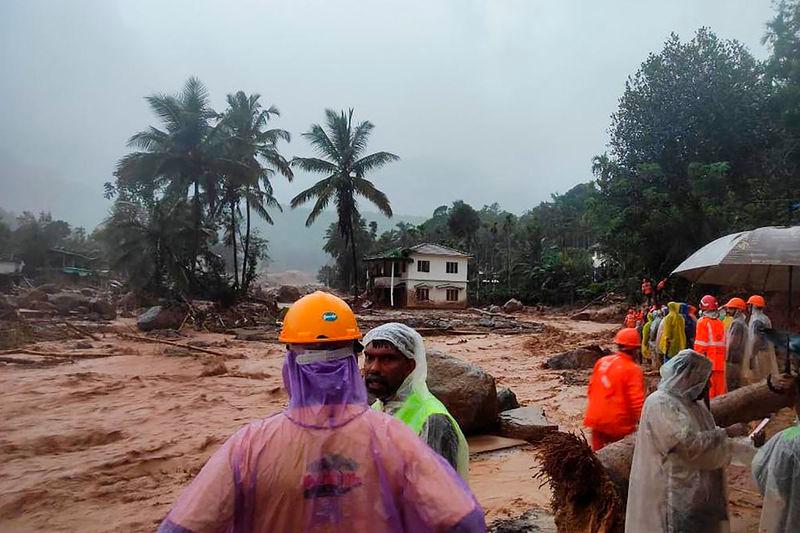BENGALURU: Landslides in India triggered by pounding monsoon rains have killed at least 36 people with hundreds more feared trapped under mud and debris, officials said Tuesday.
The southern coastal state of Kerala has been battered by torrential downpours, and the collapse of a key bridge at the disaster site in Wayanad district has hampered rescue efforts, according to local media reports.
“Thirty-six deaths have been confirmed in connection with the landslide in Wayanad,“ district official D.R. Meghasree told reporters.
Kerala state health minister Veena George told the Press Trust of India news agency that “many” others had been injured and were being treated in hospital.
Images published by the National Disaster Response Force show rescue crews trudging through mud to search for survivors and carry bodies on stretchers out of the area.
Homes were caked with brown sludge as the force of the landslide’s impact scattered cars, corrugated iron and other debris around the disaster site.
India’s army said it had deployed more than 200 soldiers to the area to assist state security forces and fire crews in search and rescue efforts.
“Hundreds of people are suspected to have been trapped,“ it said in a statement.
Prime Minister Narendra Modi said he had assured the Kerala government of “all possible help” with the situation.
“My thoughts are with all those who have lost their loved ones and prayers with those injured,“ he said in a post on social media platform X.
His office said families of victims would be given a compensation payment of $2,400 (200,000 rupees).
More rainfall and strong winds were forecast in Kerala on Tuesday, the state’s disaster management agency said.
- ‘Deeply anguished’ -
Indian opposition leader Rahul Gandhi, who until recently represented Wayanad in parliament, said he was “deeply anguished” by the disaster.
“I hope those still trapped are brought to safety soon,“ he added.
Several people injured in the landslides were brought to a hospital in the district for treatment.
Monsoon rains across the region from June to September offer respite from the summer heat and are crucial to replenishing water supplies.
They are vital for agriculture and therefore the livelihoods of millions of farmers and food security for South Asia’s nearly two billion people.
But they also bring destruction in the form of landslides and floods.
The number of fatal floods and landslides has increased in recent years, and experts say climate change is exacerbating the problem.
Damming, deforestation and development projects in India have also exacerbated the human toll.
Intense monsoon storms battered India earlier this month, flooding parts of the financial capital Mumbai, while lightning in the eastern state of Bihar killed at least 10 people.
Nearly 500 people were killed around Kerala in 2018 during the worst flooding to hit the state in almost a century.
India’s worst landslide in recent decades was in 1998, when rockfall triggered by heavy monsoon rains killed at least 220 people and completely buried the tiny village of Malpa in the Himalayas.









